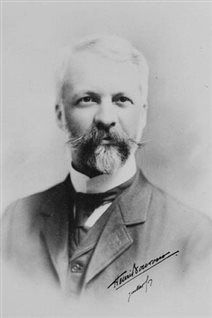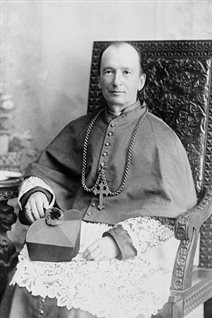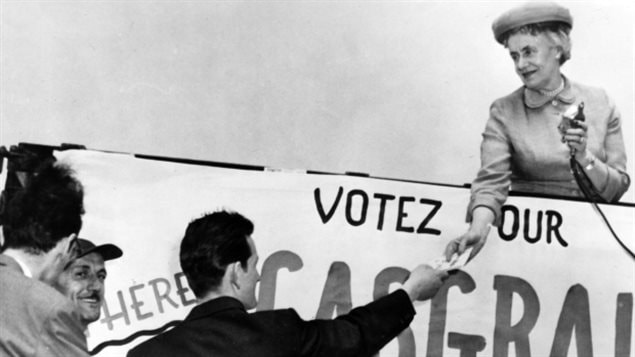On this day, April 25, 1940, Quebec finally, allowed women the right to vote, the last jurisdiction in Canada to do so.

In the late 19th and early part of the 20th century, women throughout Canada and the U.S. began demanding the right to vote.
While theCanadian federal government granted women the right to vote in 1918 for federal elections.
On the provincial scene, Ontario had already granted women municipal voting rights in 1884, while provincial voting rights in Manitoba, Saskatchewan and Alberta were granted in 1916.
By the mid 1920’s women could vote in federal and all provincial elections, and in the then British colony of Newfoundland. In fact everywhere except in the mainly French speaking province of Quebec.
Opposition remained high even as women began entering the work force in large numbers to replace men gone off to war.

As women’s suffrage was being granted elsewhere, in 1918 influential politicians and news publisher Henri Bourassa wrote that a women’s role was to be a mother, and that her rights as woman extended to that holy function and to not being a soldier and not being a voter.
(Le Devoir 30 March 1918). He also wrote that women voters would become hybrid “women-men” (hommasses) not real women adding indignately that next thing, they’ll want to become lawyers, parliamentarians, and senators!
On February 11 1922 Olivar Asselin wrote in the daily Le Matin, that, ‘Besides, the little amount of time a woman would spend on politics would only provide to the discussion a relatively inferior intelligence”
The Catholic church, a very powerful force was also generally against the idea, Cardinal Begin (1840-1925) once said (Feb 9, 1922) that the entry of women into politics, even if only by suffrage, would be “a misfortune for our province. Nothing justifies it, neither natural law nor the social interest”. Of interest he was also against jazz music, dancing, and cinemas which he said offered dangers of mortal sin.
Even to the last moment, another politician, Louis-Arthur Giroux said Quebec had its own traditions and shouldn’t have to follow other provinces just to be similar, and that granting the right to women to vote would change the province such that it would be like a “star having left its orbit”
(debates April 25, 1940 Quebec Assembly)
Nevertheless on this date, the project was tabled in the provincial legislature and passed by a large majority of 67 to 9 thanks in large part to the tireless work of Therese Casgrain and other women.
Additional information- sources







For reasons beyond our control, and for an undetermined period of time, our comment section is now closed. However, our social networks remain open to your contributions.